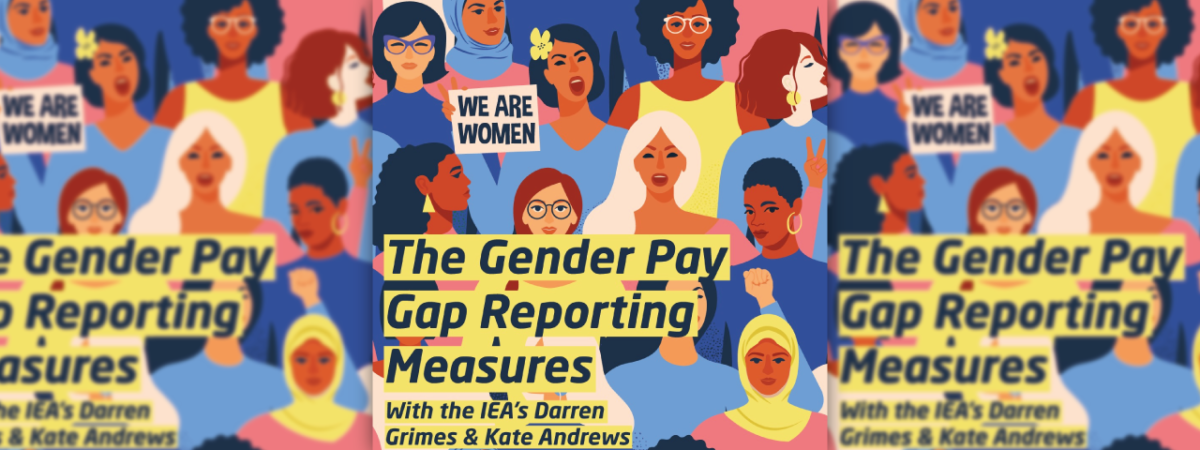Millennial Socialists: Can we blame them?
SUGGESTED



More recently, some readers have suggested that while my arguments may be correct on their own terms, the book is nonetheless wrong in its entire focus. Rather than slagging of socialism, I should have concentrated on the downsides of capitalism, and come up with ideas for rectifying them.
Their argument goes like this: the current socialism hype is simply a counterreaction to the failings of capitalism. If capitalism worked properly, nobody would be interested in socialism. But at least in its current form, it is clearly not working for a lot of people, especially a lot of young people. They cannot get on the housing ladder, they are saddled with student debt, they are often in insecure, precarious work, and they have been hit especially hard by austerity. So who can blame them for rejecting the status quo, and looking for alternatives? Who can blame them for turning to socialism?
I have three objections to that claim.
Been there, done that
Firstly, it is simply not true that I, or other free-marketeers, just attack socialism while ignoring the problems that people are currently facing. Browse the pages of this institute, and you will find hundreds of publications proposing detailed policy solutions to Britain’s most pressing economic and social problems. I, for example, have written two books on how to address poverty in the UK, and several papers on how to solve the UK’s housing crisis (e.g. here and here). You can, of course, disagree with all of these proposals, but you cannot sensibly claim that the authors are not taking those problems seriously.
In recent years, the Overton Window (≈the range of socially acceptable political opinions) has shifted so far to the Left that if you defend the market economy, people will automatically assume that you simply defend the status quo. This is absurd. Just because we haven’t introduced full-on socialism (yet) doesn’t mean that we currently have a system that free-marketeers are content with. From where I stand, the status quo is “meh”. I’d give it a C+. It’s OK-ish, and certainly infinitely better than socialism. But I am also convinced that Britain is miles below its potential in a lot of ways.
If attacking socialism was the only contribution I had ever made to public debate, my critics would have a point. But it is perfectly possible to address different issues at different times. And right now, we’re dealing with a socialism craze, which free-marketeers need to address.
Visceral anti-capitalism vs genuine grievances
Secondly, I do not believe that the current socialism hype is just a response to genuine grievances. Yes, there are real problems, and yes, addressing them would take some of the wind out of the socialists’ sails. But ideas also lead a life of their own. Ideas do not simply stand or fall depending on how well they work out in practice. If they did, socialism would have been eliminated from the tournament a long time ago.
The things everyone complains about are not always objectively bad. Suppose you were transported twenty-five years back in time. What would you miss most? Presumably, for a lot of people, online retailers, internet search engines and social media would be very high on the list.
And yet, do we appreciate these blessings of modern life? Absolutely not – almost everyone seems to hate them (or rather, claims to hate them; our revealed preferences suggest the opposite). We constantly complain about “the tech giants”, who are variously accused of ruining the high street, spreading fake news, “stealing” our personal data, evading taxes, underpaying their workers, increasing political polarisation, and so on. As Bryan Caplan puts it:
“[W]e live in a world of ingratitude. Stellar companies do a bang-up job, and “opinion leaders” […] desperately hunt for dark linings in the silver clouds of progress.”
Yes, some things are popular because they work, and some things are unpopular because they don’t work. But sometimes, things are popular to begin with, and then we retroactively look for reasons to claim that they work. And sometimes, things are unpopular to begin with, and then we retroactively look for reasons to claim that they are “fundamentally broken”.
Attitudes towards “tech giants” are just one example. As I outline on pp. 278-287 of the book, anti-capitalism is mostly visceral, and intuitive. Most of us simply don’t like capitalism, so we want to believe that it doesn’t work. I therefore reject the claim that capitalism would be popular if it worked brilliantly on every possible measure.
The last time there was a large socialist youth movement, which spanned much of the Western world, was in the late 1960s and early 1970s, the era of the student protests. These protests were not in themselves “socialist”, but they quickly merged with various socialist causes, especially Mao-mania and Ho-Chi-Minh-mania. Was that also just a counterreaction to genuine grievances? Absolutely not. In most Western countries, these were good times. The post-war boom had not yet fully come to an end, employment was high, and wages were rising. Most people had never had it so good. Who, in their right might, could seriously claim that the US, France or West Germany were hellholes in 1968, while China or North Vietnam were workers’ paradises in the making? Why, some of the most well-educated and well-informed people in the Western world, that’s who. Because the antipathy to capitalism, and the attraction to socialism, are based on intuitions, not reasoning.
Socialism and the we-must-do-something/this-is-something fallacy
But let’s assume that the current socialism hype was really exclusively a reaction to the failings of the status quo. Would it then be justified? Would it be wrong to critique it?
No. It would then be a variation of the “We must do something; this is something; so we must do this” fallacy: “We must find an alternative to the status quo; socialism is an alternative to the status quo; so we must introduce socialism”. There’s nothing wrong with people looking for alternatives, even radical alternatives – but why does that alternative have to be socialism, of all things?
I understand that people who feel that they have little to lose are more prepared to take a risk. Suppose somebody offered you a coin-flipping bet, where heads means you lose all your savings, and tails means you win £5,000. If you have a comfortable cushion of savings, you would probably deem that too risky. But if your account is already in the red, it is a no-brainer.
I can just about see why some commentators apply this reasoning to the Brexit vote (although even there, I don’t think it’s a good explanation). Brexit is the sort of policy change that could make Britain more prosperous if the government gets it absolutely right, and that will make Britain poorer if the government gets it wrong. An I-have-nothing-to-lose attitude can increase support for policies with a wide range of possible outcomes, from very positive to very negative.
But socialism really is not like that. With socialism, the range of possible outcomes stretches from quite bad to extremely bad. It’s heads, you get sent to the GDR, tails, you get sent to Democratic Kampuchea.
If Millennial Socialists want to look for alternatives, why don’t they do a more focussed search? Why don’t they look for more specific solutions to specific problems?
For example: yes, Britain has a housing crisis. So why not look around whether there are comparable countries that don’t have a housing crisis, and ask what they do differently?
And that, in a nutshell, is my answer to the question “Who can blame the young for turning to socialism?”: me, that’s who.




